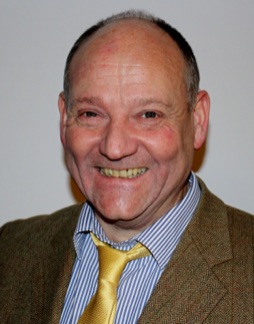
Russell Grant Foster, CBE, FSB, FMedSci, FRS
Professor of Circadian Neuroscience
Fellow, Brasenose College, University of Oxford
On October 25th, the 2015 Peter C. Farrell Prize in Sleep Medicine was awarded in celebration of the life and work of Russell G. Foster, whose quest to explore the mechanism by which light synchronizes the circadian clock led to the discovery of an entirely new function of the mammalian eye and visual system, independent of sight. Professor Foster, his colleagues and his trainees have thereby reshaped our understanding of how light exposure influences physiology and behavior.
Specifically, Professor Foster and his collaborators:
- Discovered and proved that a non-rod, non-cone photoreceptor that mediates circadian photo-entrainment, photic melatonin suppression and pupillary constriction must exist in the mammalian eye
- First characterized the unique action spectrum that mediates pupillary constriction and circadian photo-entrainment in rodless, coneless animals
- Discovered an ancient vertebrate opsin (VA opsin) expressed in horizontal cells and ganglion cell layer of the fish retina
- Discovered that VA opsin is expressed in deep brain photoreceptors in the hypothalamus of birds, and that VA opsin mediates day length detection for the regulation of seasonal biology in birds
- Demonstrated that the then-newly discovered photopigment melanopsin is functional much earlier in mammalian development than rhodopsin or cone opsins
- Demonstrated that the retinal photopigment melanopsin alone mediates the acute photic induction of sleep in the mouse
- Discovered two variants of mammalian melanopsin, each with a different functional role in non-image-forming visual responses
- Mentored many leading scientific discoverers
Harvard Medical School
Division of Sleep Medicine
2015 Peter C. Farrell Prize in Sleep Medicine Recipient
See more information about the 2015 Sleep and Health Benefit Dinner.